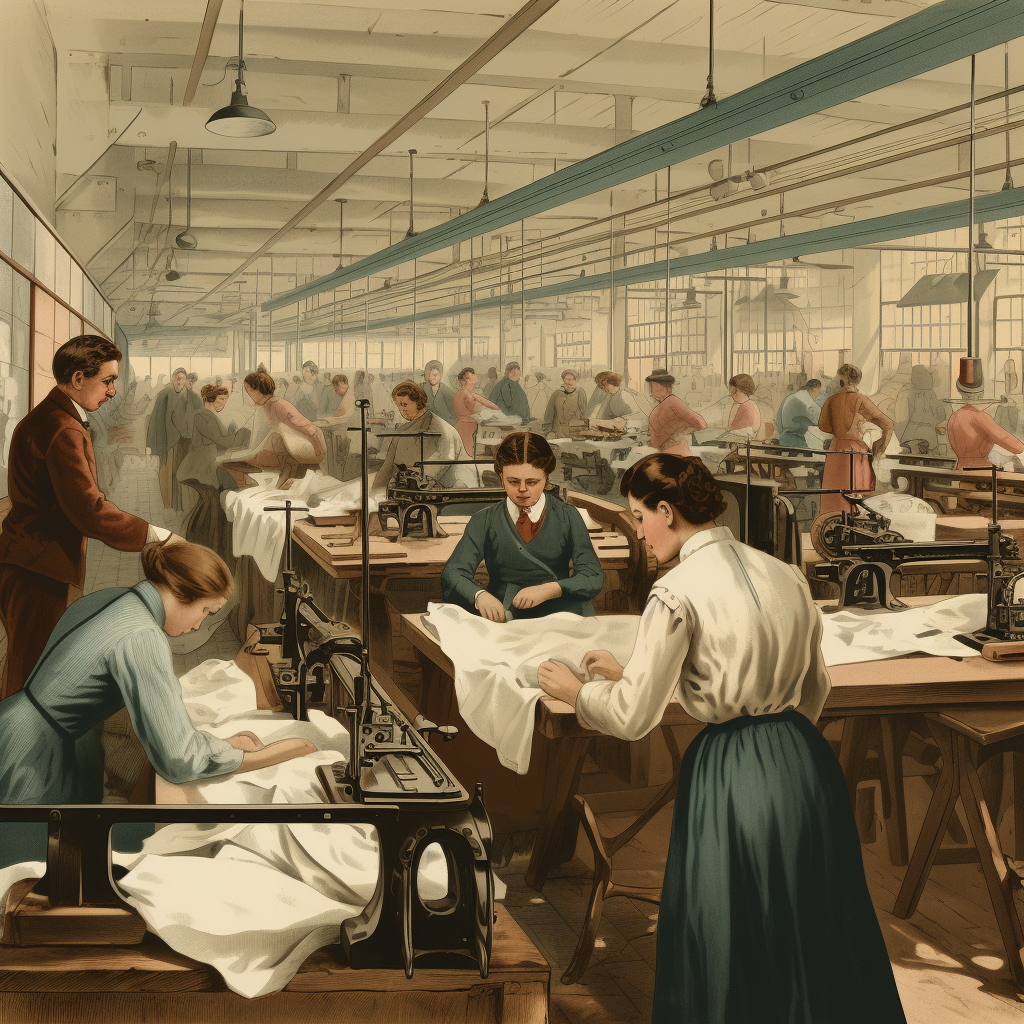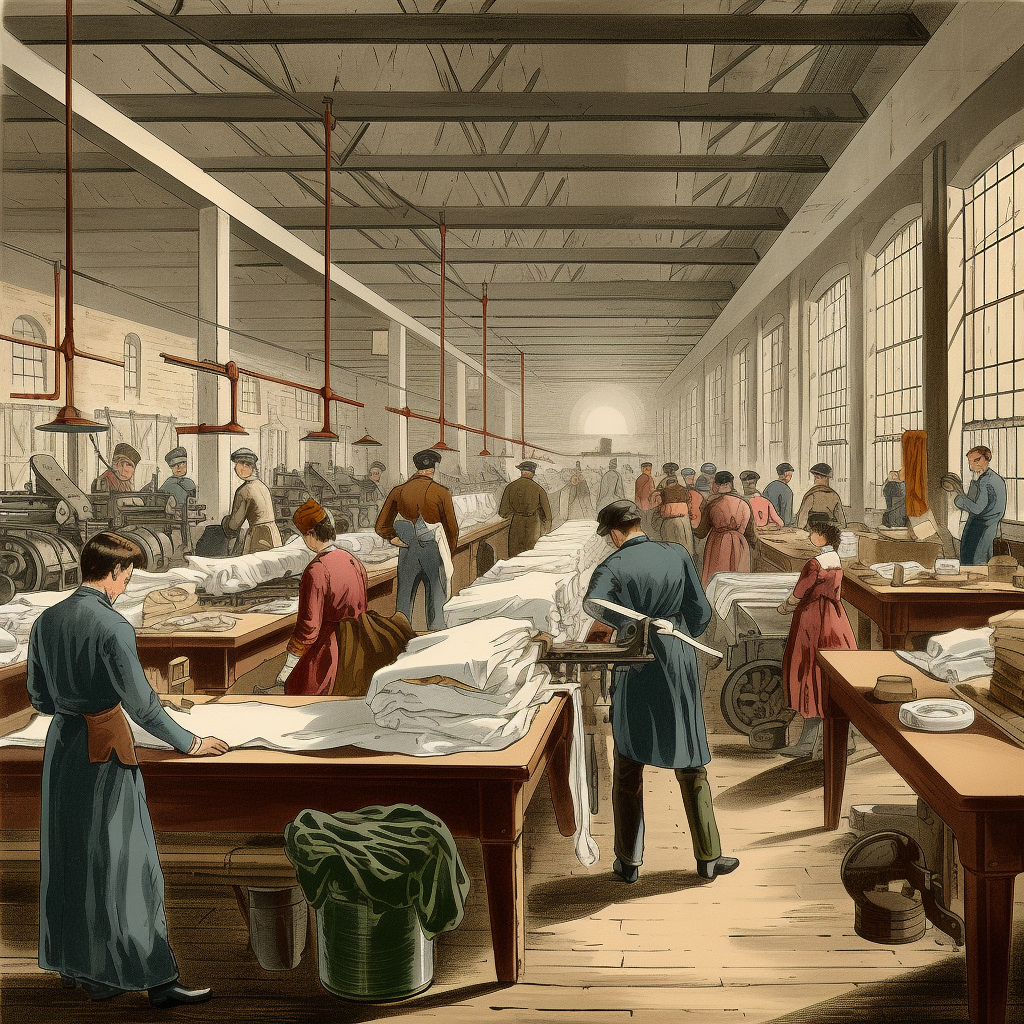
The global fashion industry has undergone a radical transformation over the last few decades, with readymade garments becoming increasingly popular. Not only do they offer convenience, but they also provide cost-effective solutions for both consumers and retailers. At the epicenter of this revolution is China, a country whose manufacturers have earned a reputation for quality, speed, and reliability.
But with a plethora of options available, how can businesses identify the best partners for their readymade garment needs? In this comprehensive guide, we aim to simplify that journey by exploring the top 10 readymade garments manufacturers in China. We’ll delve into their history, areas of expertise, quality control measures, and ethical considerations. Armed with this information, you’ll be better equipped to forge valuable, long-term partnerships with suppliers.
The Rise of China’s Garment Manufacturing Industry
Over the past few decades, China has emerged as a juggernaut in the global garment manufacturing industry. The shift started in the late 1970s when China opened its economy to foreign investment and embraced industrialization. With policies that strongly favored manufacturing, a vast labor pool, and affordable operational costs, China quickly scaled its capabilities to become one of the world’s largest garment manufacturers.
Industrial Policies Favoring Manufacturing
One of the cornerstones of China’s rise has been its forward-looking industrial policies. The country’s Five-Year Plans often emphasized manufacturing, offering incentives such as tax breaks and subsidized electricity to factories. This pro-manufacturing stance made it economically viable for domestic and foreign companies to set up large-scale operations in China.
Labor and Cost Advantages
China boasts a massive labor pool, skilled in various aspects of garment manufacturing. The labor costs have historically been lower than in Western countries, making it cost-effective for companies to produce high-quality garments in large volumes.
Technological Advancements
Another factor propelling China to the forefront is its significant investment in technology. Automation, computer-aided design (CAD), and sophisticated supply chain management systems have made Chinese manufacturers more efficient, thereby reducing the lead time for orders.
Diversification and Scale
Chinese manufacturers are not limited to one type of garment; they produce a wide range of products, from basic t-shirts and jeans to high-end fashion attire. The scale at which they operate allows them to meet varied demands, making them a one-stop solution for retailers worldwide.
By excelling in these areas, China has positioned itself as the go-to destination for readymade garments, offering a blend of quality, efficiency, and scale that is hard to match.

Why Quality Matters in Readymade Garments
The term ‘quality’ in the context of readymade garments is often multi-faceted, transcending beyond mere fabric and stitching. In today’s competitive market, quality involves a spectrum of features, including durability, fit, comfort, and even the ethical dimensions of manufacturing.
Durability and Material Quality
A primary consideration in readymade garments is the durability and quality of materials used. Consumers expect their purchases to last, making durability a key factor in their buying decisions. High-quality materials and precise craftsmanship are thus non-negotiables for top manufacturers.
Fit and Comfort
The intricacy of the fit and the comfort level of the garment significantly influence customer satisfaction. An ill-fitting product can lead to negative reviews and returns, affecting a brand’s reputation. Leading manufacturers invest in skilled labor and technology like 3D body scanning to ensure accurate sizing.
Ethical Dimensions
In the age of conscious consumerism, ethical manufacturing practices are gaining prominence. This includes everything from fair wages and working conditions to environmentally sustainable production methods. China’s top manufacturers often adhere to international standards, such as the SA8000 for social accountability.
The Role of Quality Certifications
Recognized quality certifications like ISO 9001 act as a testament to a manufacturer’s commitment to quality. They serve as benchmarks that manufacturers need to meet, thereby assuring potential partners and clients of their capabilities.
In summary, quality isn’t an isolated concept but a comprehensive criterion involving multiple aspects. A quality garment is one that not only looks good but also lasts long, fits well, and is ethically produced.
Leading Certifications for Garment Manufacturers
When it comes to identifying quality and ethical practices among garment manufacturers, certifications often act as reliable indicators. These are not merely badges but comprehensive frameworks that set the benchmarks for various aspects of manufacturing. Here are some of the leading certifications commonly held by top garment manufacturers in China:
ISO 9001: Quality Management
ISO 9001 is a globally recognized certification for quality management systems. Manufacturers with this certification have a documented system to ensure quality at each stage of production, from material sourcing to the finished product.
WRAP: Worldwide Responsible Accredited Production
WRAP is a certification that focuses on ethical and responsible manufacturing. It takes into account labor practices, working conditions, and environmental impacts, ensuring that manufacturers adhere to lawful, humane, and ethical production.
SA8000: Social Accountability
Another globally acknowledged certification, SA8000 sets guidelines for ethical treatment of workers, covering areas like child labor, forced labor, health and safety, and freedom of association.
OEKO-TEX Standard 100
Focused on environmentally friendly practices, OEKO-TEX Standard 100 certification ensures that textiles and garments have been tested for harmful substances, offering assurance of the products’ ecological quality.
BSCI: Business Social Compliance Initiative
BSCI aims to improve working conditions in global supply chains and is particularly relevant for companies that source their products from multiple countries, including China. It covers a range of social compliance issues such as workers’ rights and environmental impact.
Having these certifications is almost like a seal of approval, indicating that a manufacturer is committed to meeting or exceeding international standards in both quality and ethical manufacturing.
Top 10 Readymade Garments Manufacturers in China
Navigating the complex landscape of garment manufacturing in China can be daunting. However, several standout companies have earned a reputation for their exceptional quality, scale, and ethical practices. Here’s an overview of the top 10 readymade garments manufacturers that have set the benchmark in the industry.
Esquel Group
Known for producing high-quality cotton shirts, Esquel Group incorporates advanced technologies and sustainable practices into its manufacturing processes. It holds several certifications, including ISO 9001, affirming its commitment to quality.
Luen Thai
Luen Thai specializes in casual and outerwear. With a focus on both design and functionality, the company has earned a reputation for its detailed craftsmanship and reliability.
Crystal International
A major player in the apparel industry, Crystal International excels in producing a wide variety of garments, including denim and sportswear. The company adheres to multiple international standards, such as WRAP.
Jiangsu Lianfa
Primarily engaged in the production of dyed yarn and fabrics, Jiangsu Lianfa has expanded its range to include readymade garments. The company is known for its innovation and has secured several patents in textile technology.
Shenzhou International
One of the leading vertically integrated knitwear manufacturers in China, Shenzhou International serves a global market. Its focus on sustainability and social responsibility is confirmed by certifications like SA8000.
Youngor Group
Specializing in men’s apparel, Youngor Group has a strong domestic presence and has been venturing into international markets. It prioritizes quality and sustainability in its manufacturing processes.
Weiqiao Textile
Famous for its cotton textiles, Weiqiao Textile is expanding into garment manufacturing with an emphasis on quality and environmental responsibility, evidenced by its OEKO-TEX Standard 100 certification.
Lu Thai Textile
With a wide range of products from casual to formal wear, Lu Thai Textile is known for its versatility and quality. It is also one of the few companies in China to have received the BSCI certification.
Texhong Textile Group
Texhong specializes in core-spun yarns and has made significant strides in garment manufacturing. It is committed to innovation and quality, setting it apart from many competitors.
Anta Sports
Though primarily known for sportswear, Anta Sports has diversified into everyday apparel. It is renowned for its commitment to quality and has been rapidly expanding its global footprint.
By understanding the strengths and certifications of these top manufacturers, businesses can make more informed decisions when selecting a manufacturing partner in China.
As the global demand for readymade garments continues to grow, China remains a key player in meeting this demand with quality, scale, and efficiency. Companies ranging from small startups to large-scale retailers can find a suitable manufacturing partner among China’s diverse and skilled set of manufacturers.